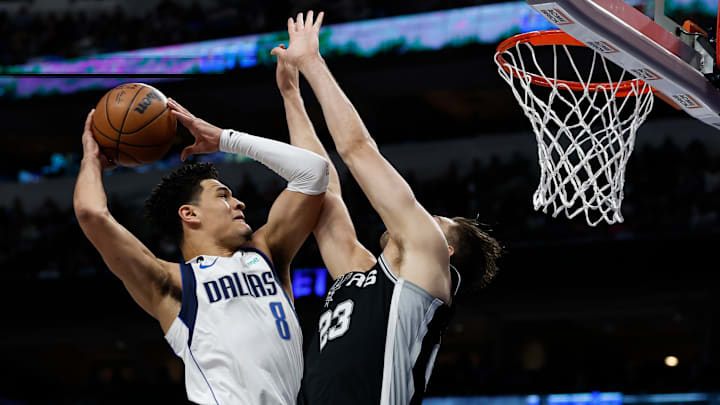
1. Mike Miles Jr.
Mike Miles Jr. was born to play the game of basketball. Miles Jr. first made headlines as a fourth grader. He was compared to Allen Iverson, a diminutive guard with elite quickness and a knack for scoring.
Miles Jr. continued to improve throughout high school and college as he starred for the TCU Horned Frogs. Miles Jr. improved every season in Fort Worth and averaged 17.9 points per game in his junior season.
While Miles Jr. doesn't have a sought-after build, he has continued to find success wherever he plays. Miles Jr. stands at 6-foot-1 but looks closer to 6-foot-flat. He doesn't have a plus wingspan either, as it resembles his height.
Furthermore, the former Horned Frog guard is sturdy. Unlike the typical NBA player, Miles Jr. looks more like an NFL safety than an NBA guard. He is strong and athletic.
Miles Jr. frequently uses his strength and athleticism to get to the rim. He is a fearless finisher who isn't hesitant to challenge anyone at the rim. Miles Jr. is quick off the dribble and shifty in open space. He uses his burst and cross-over to create space.
In the NBA today, guards need to be good shooters. It's not that Miles Jr. is a bad shooter, he just prefers to drive more than shoot. Throughout his collegiate career, he averaged 1.5 threes on 4.4 attempts per game. If Miles Jr. can improve on his three-point percentage and volume, a spot will be available for him on the roster.
Miles Jr. may have the most refined game out of all the prospects on this list entering their rookie seasons. However, he is an undersized guard, so he'll face an uphill battle to find playing time.
If Miles Jr. demonstrates the ability to lead a second unit effectively while providing effective scoring from off the bench, a role will be available for Miles Jr.
A best-case scenario for the Dallas guard would be becoming an elite backup. While Miles Jr. may never provide starter minutes on a competitive team, leading the bench unit for 15-20 minutes per game would be considered a success.
